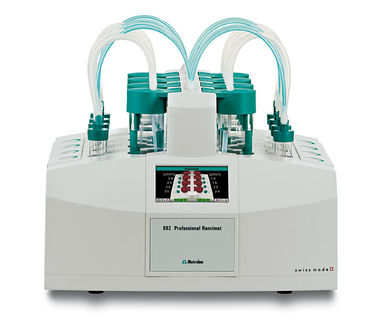| Fc fragment of IgG, high affinity Ia, receptor (CD64)
|
| Identifiers
|
| Symbol
| FCGR1A
|
| Entrez
| 2209
|
| HUGO
| 3613
|
| OMIM
| 146760
|
| RefSeq
| NM_000566
|
| UniProt
| P12314
|
| Other data
|
| Locus
| Chr. 1 q21.2-21.3
|
| Fc fragment of IgG, high affinity Ib, receptor (CD64)
|
| Identifiers
|
| Symbol
| FCGR1B
|
| Entrez
| 2210
|
| HUGO
| 3614
|
| OMIM
| 601502
|
| RefSeq
| NM_001004340
|
| UniProt
| Q92637
|
| Other data
|
| Locus
| Chr. 1 p11.2
|
| Fc fragment of IgG, high affinity Ic, receptor (CD64)
|
| Identifiers
|
| Symbol
| FCGR1C
|
| Entrez
| 2211
|
| HUGO
| 3615
|
| OMIM
| 601503
|
| RefSeq
| XM_001133198
|
| Other data
|
| Locus
| Chr. 1 q21.1
|
CD64 is a type of integral membrane glycoprotein known as an Fc receptor that binds monomeric IgG-type antibodies with high affinity.[1] It is more commonly known as Fc-gamma receptor 1 (FcγRI). After binding IgG, CD64 interacts with an accessory chain known as the common γ chain (γ chain), which possesses an ITAM motif that is necessary for triggering cellular activation.[2]
Structurally CD64 is composed of a signal peptide that allows its transport to the surface of a cell, three extracellular immunoglobulin domains of the C2-type that it uses to bind antibody, a hydrophobic transmembrane domain, and a short cytoplasmic tail.[3]
CD64 is constitutively found on only macrophages and monocytes, but treatment of polymorphonuclear leukocytes with cytokines like IFNγ and G-CSF can induce CD64 expression on these cells.[4][5]
There are three distinct (but highly similar) genes in humans for CD64 called FcγRIA (CD64A), FcγRIB (CD64B), and FcγRIC (CD64C) that are located on chromosome 1.[6] These three genes produce six different mRNA transcripts ; two from CD64A, three from CD64B, and one from CD64C; by alternate splicing of the genes.[7]
References
- ^ Hulett M, Hogarth P (1998). "The second and third extracellular domains of FcgammaRI (CD64) confer the unique high affinity binding of IgG2a". Mol Immunol 35 (14-15): 989-96. PMID 9881694.
- ^ Nimmerjahn F, Ravetch J (2006). "Fcgamma receptors: old friends and new family members". Immunity 24 (1): 19-28. PMID 16413920.
- ^ Ernst L, Duchemin A, Miller K, Anderson C (1998). "Molecular characterization of six variant Fcgamma receptor class I (CD64) transcripts". Mol Immunol 35 (14-15): 943-54. PMID 9881690.
- ^ Perussia B, Dayton E, Lazarus R, Fanning V, Trinchieri G (1983). "Immune interferon induces the receptor for monomeric IgG1 on human monocytic and myeloid cells". J Exp Med 158 (4): 1092-113. PMID 6225822.
- ^ Repp R, Valerius T, Sendler A, Gramatzki M, Iro H, Kalden J, Platzer E (1991). "Neutrophils express the high affinity receptor for IgG (Fc gamma RI, CD64) after in vivo application of recombinant human granulocyte colony-stimulating factor". Blood 78 (4): 885-9. PMID 1714327.
- ^ Ernst L, van de Winkel J, Chiu I, Anderson C (1992). "Three genes for the human high affinity Fc receptor for IgG (Fc gamma RI) encode four distinct transcription products". J Biol Chem 267 (22): 15692-700. PMID 1379234.
- ^ Ernst L, Duchemin A, Miller K, Anderson C (1998). "Molecular characterization of six variant Fcgamma receptor class I (CD64) transcripts". Mol Immunol 35 (14-15): 943-54. PMID 9881690.
| Transmembrane receptors: immune receptors |
|---|
| Cytokine receptor | Type I: interleukin (IL-2, IL-3) - CSF (Erythropoietin, GM-CSF, G-CSF) - Glycoprotein 130/Oncostatin M - Leukemia inhibitory factor - common subunits (Common gamma chain, CSF2RB)
Type II: interleukin (IL22RA2) - interferon (IFNAR, IFNGR)
Other: Chemokine - TGF-beta - Tumor necrosis factor |
|---|
| Pattern recognition/Toll-like | TLR 1 - TLR 2 - TLR 3 - TLR 4 - TLR 5 - TLR 6 - TLR 7 - TLR 8 - TLR 9 - TLR 10 |
|---|
| Fc receptor | ε (FcεRI, FcεRII) - γ (FcγRI, FcγRII, FcγRIII) - α/μ (FcαRI, Fcα/μR) - Neonatal |
|---|
| Lymphocyte homing receptor | CD44 - L-selectin - VLA-4 - LFA-1 |
|---|
| other | Antigen receptor (B-cell, T cell) - Complement - Formyl peptide - Immunophilins - Integrin - Killer-cell immunoglobulin-like - Scavenger |
|---|
|







